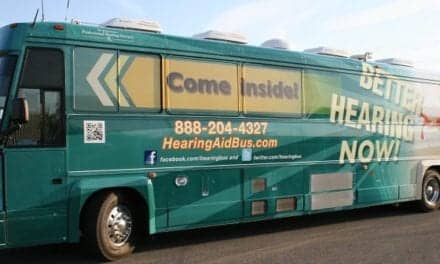A unique 3-week summer pilot program called Read to Succeed was recently introduced by the House Research Institute’s Children’s Auditory Research and Evaluation (CARE) Center.
The program is designed for preschool age children with hearing loss who come from Spanish-speaking homes, and their parents.
Recognizing a gap in literacy development in deaf and severely hard-of-hearing preschoolers from homes where English is a second language, CARE Center clinicians developed the Read to Succeed program. The CARE Center team hypothesizes that by providing a short but intense cycle of literacy-focused intervention, the children will benefit with respect to multiple measures of literacy skill development. With this premise, they designed as a research study an intensive 3-week program for the children, along with a parental education component.
The long-term objective is to develop interventions to better prepare preschoolers with hearing loss, particularly those from non-English-speaking homes, for success in mainstream schools.
A total of 17 children participated in the summer pilot program, and ranged in age from 4 to 7. By the close of week 3, transformations were clearly evident. Children demonstrated an increased desire to read and write. Parents demonstrated an increase in encouraging their children to read and write, and a shared enthusiasm for their progress.
“Read to Succeed fosters development of emergent literacy skills and knowledge of print and word concepts, phonological awareness, and early comprehension skills,” said Debra Kay Schrader, educational liaison, HRI’s CARE Center, who spearheaded the program with significant support from her colleague Dianne Hammes-Ganguly, MA CCC-SLP, among other CARE Center staff members. “It is based on the concept that when high quality, balanced instruction is provided by trained teachers and combined with an increase in the parents’ understanding of the critical importance of early shared-book-reading experiences, it can make a significant impact on a child’s literacy skill development, overall quality of life, and future success.”
In the pilot program, daily lessons used phonological awareness (PA), concepts of print and word knowledge, and reading comprehension, delivered by a team of teachers of the deaf and hard of hearing and listening and spoken language specialists. After reviewing the children’s abilities based on pre-program assessments, the instructors engaged them in shared writing, shared reading, a comprehension mini lesson, an interactive 3-day read aloud experience, dialogic reading guided one-on-one, and small group phonological awareness training. This instruction was based on the overall needs of the groups of children placed with a teacher. The children were then regrouped after a 4-day teaching cycle in PA.
Parents of the enrolled children participated in their own educational sessions to help them identify the importance of early reading experiences and learn key strategies for development of reading skills.
“The results of the pilot program provide valuable information to us as we strive to improve how we support the reading and literacy skill development of today’s children with hearing loss,” said Schrader.
SOURCE: The House Research Institute


